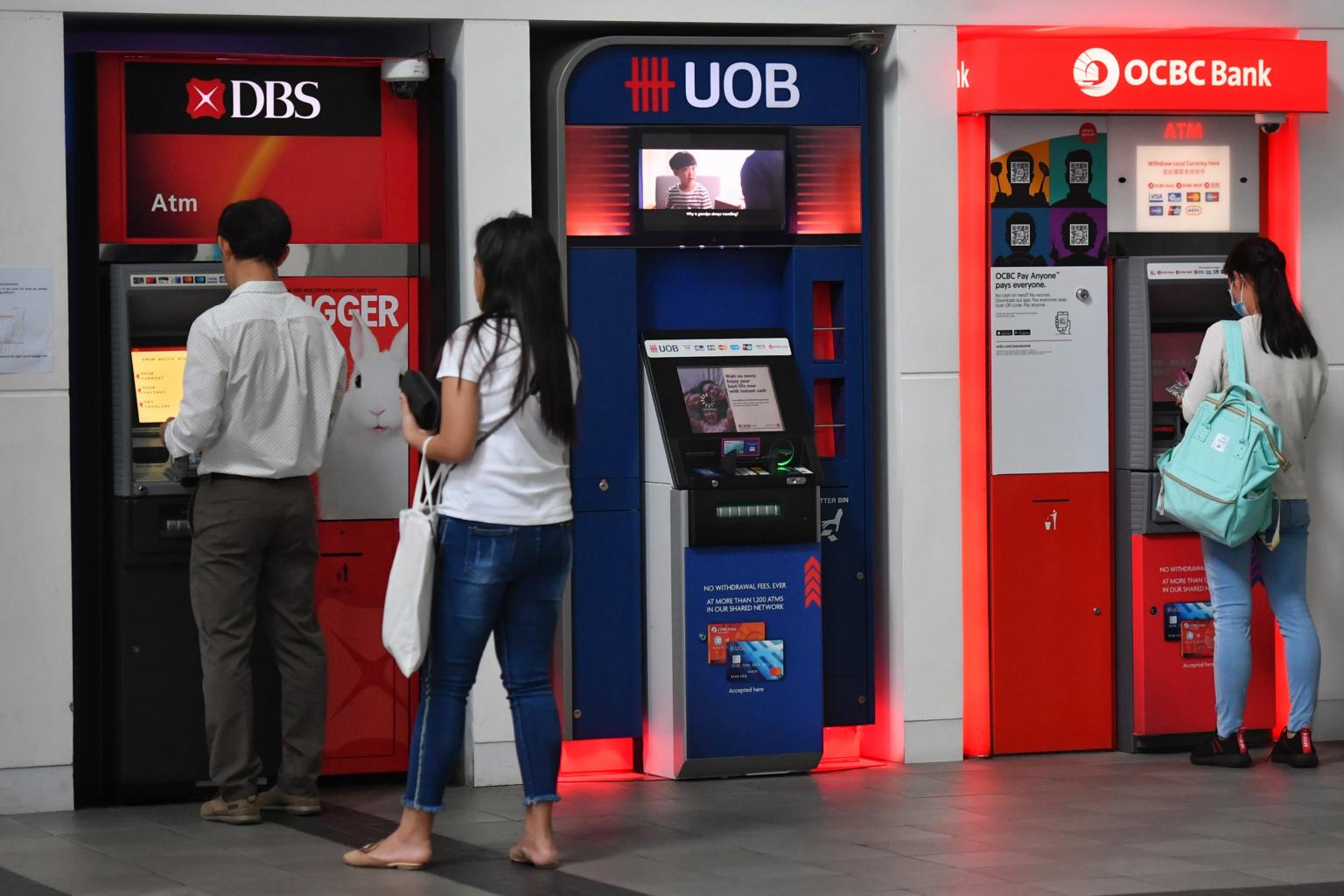Bank customer satisfaction in Singapore dipped 1.7% in 2020: SMU study
Sign up now: Get ST's newsletters delivered to your inbox

Bank users gave lower satisfaction ratings and indicated lower levels of loyalty and price tolerance.
PHOTO: ST FILE
Jolene Ang
Follow topic:
SINGAPORE - Bank customer satisfaction dipped amid the Covid-19 pandemic, even as more turned to online financial services, according to an annual study by the Singapore Management University (SMU).
Bank users gave lower satisfaction ratings and indicated lower levels of loyalty and price tolerance, the Customer Satisfaction Index of Singapore (CSISG) study found.
The study computes customer satisfaction scores at national, sector, sub-sector and company levels.
The findings of the study regarding the finance and insurance industry were released on Wednesday (March 31).
The finance sector comprises banks, credit cards and e-payments sub-sectors.
The banks sub-sector scored 74 points out of 100 in customer satisfaction, a 1.7 per cent decline from the previous year.
The credit cards sub-sector scored 72.7 points, which is similar to the previous year's results, while the e-payments sub-sector is a new inclusion to the study this year, scoring 79 points.
The insurance sector scored 73.8 points but the score is not comparable with that of previous years due to changes in survey and sampling methodologies.
Ms Neeta Lachmandas, executive director of the Institute of Service Excellence (ISE) at SMU that conducted the survey, said bank customers became more price-sensitive, given the economic environment.
"Coupled with reduced service levels, such as temporary branch closures due to the Covid-19 pandemic, the industry as a whole had a tough time in 2020," she added.
Mr Sunny Quek, OCBC's head of consumer financial services in Singapore, said the pandemic was a big disruptor for the banking industry last year.
Many customers were unable to visit some of the bank's branches during the circuit breaker period while other customers also had to get used to strict safe distancing measures, he said.
"At branch locations where it was feasible, we implemented separate queues with seats for pregnant women and for the elderly, so they could wait comfortably," said Mr Quek.
The study also found that use of the banks' digital channels rose from 72.1 per cent in 2019 to 76.9 per cent last year. The percentage of customers aged 60 and above who indicated use of these channels rose from 20.3 in 2019 to 65.5 last year.
Mr Chen Yongchang, ISE head of research and consulting, said: "Banks adapted to the closure of branches by ramping up their digital channels, prompting older customers who tended to not use these channels to adopt them in a big way in the past year."
These customers were observed to be relatively satisfied with the use of Internet banking, he noted.
In the credit cards sub-sector, more customers made online purchases. When asked which category of merchants they had most recently spent on, 16.1 per cent of cardholders indicated food delivery platforms, compared with 3.8 per cent in 2019.
Online shopping marketplaces also saw an increase in the proportion of their spending, with 10.8 per cent of respondents indicating it as their "most recent spend" category, compared with 6.6 per cent the year before.
E-payment systems, which were added to the CSISG study this year, included e-wallets and payment apps such as Apple Pay, GrabPay, and PayLah!, as well as mobile banking apps that facilitated payments using PayNow.
Some 79.2 per cent of e-payment respondents reported an increase in the use of e-payments, compared with 2019.
"The industry's efforts to roll out e-payment solutions to merchants and customers appear to have gained momentum and bore fruit in 2020," said ISE's Mr Chen.
Some 4,720 local consumers were surveyed for the finance and insurance sectors between October last year and January this year. This is the fourth and final set of findings released.
The infocommunications and retail sectors were measured in Q1 last year, the air transport and land transport sectors in Q2, and the food and beverage as well as tourism sectors in Q3.
Based on the customer satisfaction scores for eight key economic sectors and 22 sub-sectors of the Singapore economy, the national customer satisfaction score for 2020 was 74 points, compared with 74.3 in 2019.

